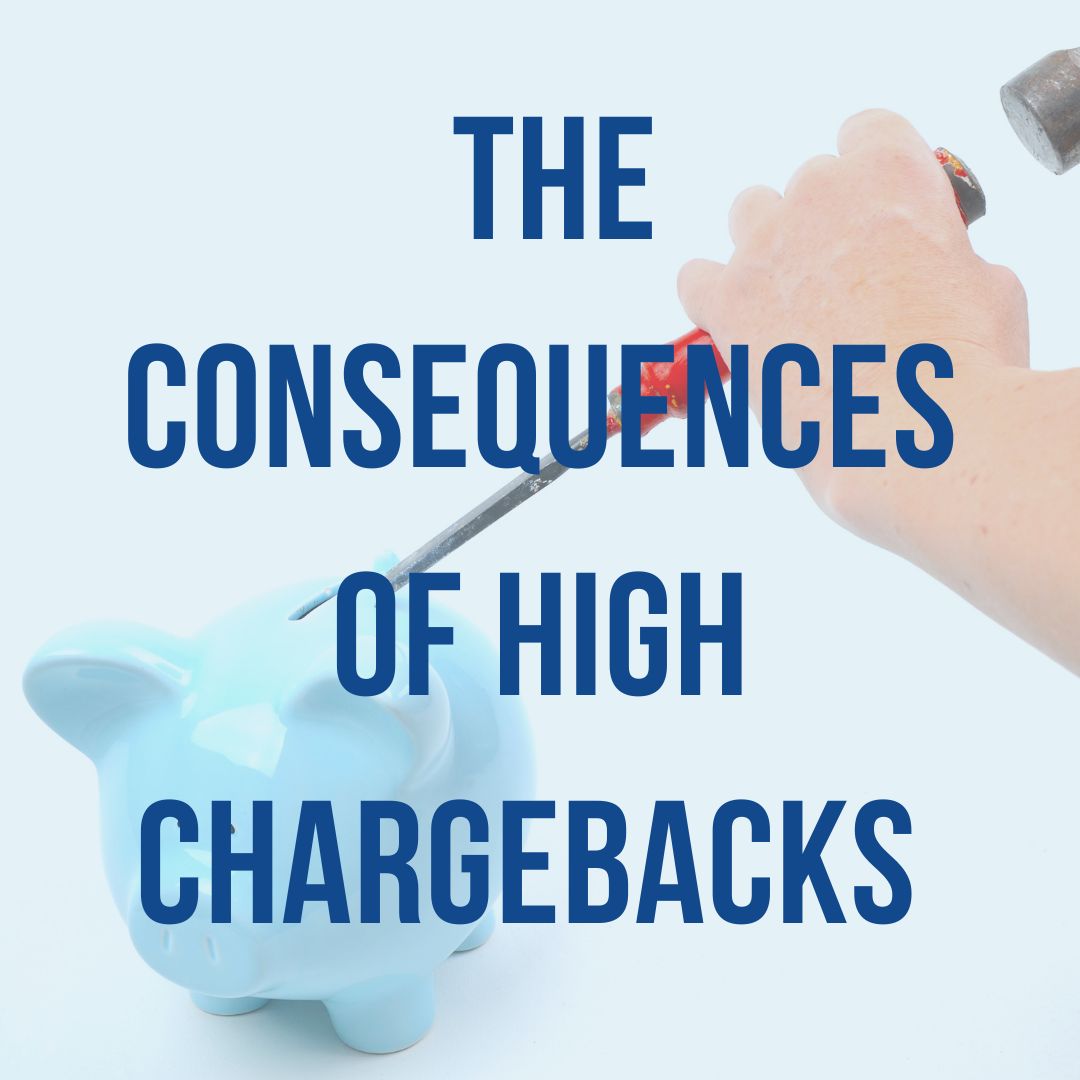Understanding Payment Processing Rate Quotes
Have you been frustrated by trying to find an accurate and affordable payment processing rate quote? Or have you had a processor work up a so-called “savings analysis” only to have your rates turn out much higher than what they quoted you?
Business owners are always looking for the lowest Payment Processing rates they can get. One can hardly blame them. It’s expensive to run a business, and it's expensive to accept credit card payments. Business owners have to reduce overhead wherever they can without compromising quality.
At the same time, credit card processing sales agents are often eager to constantly sign new accounts and build their portfolio. Sometimes, processors even stipulate monthly minimums in new account volume they have to meet or be fired. So when they come in to offer you a quote, they only have one goal in mind: to get you to switch your processing over to them.
To get you to change processors, they have to give you an incentive. So it’s in their best interest to promise to save you a lot of money. Sales agents offer to prepare something called a “savings analysis” for you. A savings analysis is a type of quote. The salesman will look over your current rates and write up a quote that looks like it beats that rate. But only by a margin.
So they come to you with a quote that sounds fantastic and you sign a new contract and switch your processing once again. But inevitably, a couple of months later, you notice that your rates are not at all what they promised. You call, they give you the run-around and you wind up frustrated and feeling duped.
Why is it so hard to get an accurate quote for credit card processing?
Well, first of all, there are several types of billing structures for credit card payment processing. There is Interchange Plus or pass-through pricing, flat-rate pricing, and tiered or bundled pricing. If they are preparing a savings analysis, they must be comparing apples to apples to get an accurate quote.
There are also several different billing statement formats that processors use. All their statements are broken down differently from processor to processor. And some are notoriously hard to understand. Most merchants can’t accurately break down their own statements. And surprisingly, many salesmen in the industry can't correctly break down another processor's statement.
Salesmen know this and use it to their advantage when crafting a savings analysis. There are many ways an unscrupulous or uneducated salesman can write up a deceptively low quote just to earn your business.
In this article, we’re going to talk about some of the most common ways the “savings” in a cost analysis can seem much larger than it will actually be. But first, it's helpful to understand a bit about processing fees and where they come from.
Understanding Interchange will help you get an accurate credit card processing quote
Let’s talk a bit about Interchange. Interchange refers to a set of fee categories for processing payments for every card type on the market. There are hundreds of different card types issued to consumers by the card issuing banks. The Interchange fee categories correspond to each and every card type on the market. And there is a separate fee for each one of these categories. Therefore, your statement will show many categories and fees depending on the cards you accepted in any given month.
The Interchange fee schedule is set by the card brands such as Visa, MasterCard, and American Express. Visa and MasterCard both publicly post their interchange fees on their website. Amex and Discover do not. The fees go to the card-issuing banks that provide credit cards to customers such as Wells Fargo or Chase. They consist of a specific percentage rate for each card type processed, plus a per transaction fee for every transaction processed. On top of the Interchange rates, there are also fees and assessments that are imposed by the card associations and the card issuing banks.
These fees are non-negotiable and are the same for every processor. They are simply passed through to the merchant by the processor.
Interchange fees are the base of your processing fees and make up the majority of your costs. That means that every processor, and therefore every merchant, has the same base rate. Everything else in your quote is the processor’s mark-up and assessments.
This is why Interchange Plus pricing is the most transparent pricing you can get. Since the base Interchange rates are set, you only need be concerned with the processor’s mark-up rate. This is the amount that they will be charging you for processing. The types of cards you accept will vary, and therefore, so will your base costs. But the rate the processor is charging you will always be the percentage rate plus a per transaction fee.
Salesmen can still manipulate Interchange Plus pricing to promise lower rates
Sometimes, in order to quote you a lower overall rate, a salesman will give you a quote using mostly cheaper interchange categories. They leave the more expensive card type categories out of the quote. But that might not accurately depict the types of cards you accept.
Debit and regular credit cards have the lowest Interchange rates. Rewards, Cash back, and Miles cards come with a higher Interchange rate. And Corporate, Corporate Rewards, and American Express Black cards are among the highest Interchange rates. It is highly likely that you accept some card types from more expensive categories.
Leaving these more expensive card types out of the quote will make your savings analysis look very good. But, when your actual processing comes in, it’s much higher than quoted because of those more expensive categories.
Sometimes this is done intentionally to make the quote they're giving you look low. Other times it is because they don’t understand Interchange very well. Or they don’t have access to data regarding the average interchange mix for your industry.
Another thing to look out for are added extra fees and assessments. These are things like application fees, cancellation fees, statement fees and more. The “savings analysis” might only address the processing rates and conveniently leave out or gloss over the additional fees on the quote. They can promise you a low rate, but these extra fees can add up.
Tiered and Bundled Merchant Account Pricing is easy to manipulate

When they start talking about qualified rates, they’re most likely quoting you “tiered” or “bundled” pricing. The most common tiered pricing will include three levels: qualified, mid-qualified, and non-qualified. Remember how we said that Interchange rates have hundreds of categories? With tiered pricing, all the categories are bundled into one of the three levels. The qualified tier is the lowest rate and will include cards like debit and regular credit. The other two tiers have higher rates and include the higher priced card types such as rewards and miles cards.
The salesman will quote you a very generous rate for qualified transactions and not really talk about the other, more expensive tiers.
What they don’t tell you is that they decide which cards fall into each tier. There is no standardized format that processors must follow. So they can decide that most of your card types are not considered “qualified” and bump them to the mid-qualified rate. But they don’t tell you they have control over this.
When your rates come back higher, they can still stand behind their quote. After all, you are getting the rate they quoted you for qualified cards. It’s just that most of the cards you accept aren’t qualified.
Even when we are not talking about savings analysis, this type of deceptive pricing is the chief reason we advise most businesses to find a processor who offers interchange-plus pricing.
Watch out for Mark-Up Only quotes for payment processing
Another sneaky trick to make your quote look lower is to only quote the mark-up. Any other fees and assessments are left out of the quote. But all those extra fees are being charged on your current statement, so they’re not even comparing apples to apples. It’s not necessarily lying so much as it is leaving information out of the equation.
An Interchange Plus pricing quote will seem like you’re only quoted the mark-up the processor is adding to the Interchange. But it should always also include any and all additional fees and assessments. It is the only way to get an accurate picture of what you will pay each month for processing.
A mark-up only quote is another way they conveniently leave costs out to make their offer look better.
Therefore, it’s important to calculate your total “effective” rate and not just the processing rate. To calculate your effective rate, add all costs involved, including rates, fees, assessments, and any other costs. Then divide that number by your total volume processed. This will give you the true total cost of your processing or what’s referred to as your “effective rate”.
If you just look at your processing rate and don’t take all the other fees into account, you could actually pay more. This is one way for a savings analysis to focus on one rate while glossing over other, sometimes excessive fees.
Dangers of Low Introductory Rates
Another thing to watch out for is being quoted at an introductory rate. When a salesman offers you an extremely low rate, it is a good indication it might be only an introductory rate. Most often, they quote an introductory rate to get you to sign a contract. The processor will only honor the rate for a limited time and then it will be raised almost immediately.
Unless you sign with a processor who offers a lifetime rate lock, they can raise rates whenever they want. The salesman will offer the merchant a screaming introductory rate to get the account and move on down the line. The bank will review the merchant account and decide the rates are too low. They raise the rates, effective immediately. Most of the time, the only notification to the merchant will be in the small fine print somewhere on the current statement. Not only do most merchants miss the message, but they don’t realize that many fees are negotiable.
A note about Flat Rate Pricing (Square, Stripe)
Flat rate processing is difficult to cost-compare. Almost as difficult as Tiered pricing.
With flat-rate pricing, interchange rates are not disclosed on the statement. The flat rate they charge will be enough to encompass even the most expensive card type and any fees and assessments. Even if 90% of the card types you accept fall into the cheaper interchange category, you will pay the same flat rate. For this reason, there’s really no way to do a savings analysis with much accuracy.
Instead, get a quote from an expert that shows the best deal they can give you. Ideally, they will have access to average interchange mix data for your industry to base your quote on. Your savings will be an educated guess at best. Your rate could come in higher or lower than what you were quoted based on the actual card types you accept. It will take at least a couple of months processing to see how your average card types differ from industry averages.
How to get a fair Merchant Account Processing Rate Quote
First of all, ask the processor for a quote with the best deal they can give for your business type and processing volume. You do not need a savings analysis. With the correct information about your business, a reputable advisor should be able to give a quote with very competitive pricing. They will need information about your industry and business type, your average transaction size, average monthly volume, the types of cards you accept, and how you process them.
Make sure you get a written quote before you give them your current statement. Once you have a quote, they can compare it to your current rates to show where you may be overpaying.
A lot of salesmen don’t like to give you a quote without looking at your current statement. They may even tell you they can’t give you a quote without it. Yes, they can. Is it harder? No. it’s just harder to beat your rates because they don’t know what you’re paying or where they can trim the fat.
Make them show you where they are finding the savings. Ask your salesman to show you the math and explain their credit card processing rates. Most of the time, they won’t be able to. It’s true that many statements are difficult to understand. But an experienced advisor will be able to go through your quote in detail and explain exactly how they came to their numbers.
Once you’ve gotten a written quote, the “analysis” is less about beating your rates and more about showing you how their rate compares to what you’re currently paying.
Interchange-Plus Pricing is The Best for Merchants
Note: Some high-risk businesses are limited in the processors that will take them. In these cases, often merchants have no choice but to accept a tiered pricing model. But these special instances are a topic for another article. They require addressing high-risk and hard to place business types. And many times, there aren't a lot of options for them.
We strongly believe that the Interchange Plus pricing model is the best for merchants. It is the most transparent pricing, and it's easy to understand. Interchange plus is the most transparent pricing model because there is nowhere to hide fees. Insisting on Interchange Plus pricing is the best way for merchants to know they're getting fair and honest Payment Processing rates. Interchange fees, the mark-up, and additional fees and assessments are all disclosed openly. Once you have a fair quote, make sure they offer you a lifetime rate lock. With interchange-plus and a lifetime rate lock, you don’t have to worry about ridiculous rate hikes.
That doesn't mean your rates will never go up. Your rates may increase, but your processor's mark-up cannot be increased.Twice a year, the card brands assess their interchange rates. At that time, they may decide to increase interchange rates. In fact, both Visa and MasterCard planned to increase interchange rate fees both last year and again in 2021. However, they delayed the increase due to the Covid crisis.
When they increase the rates for using the Interchange, your base rates go up. But your mark-up and the other fees the processor charges stay the same.
Confirm your payment processing rate quote - before signing
Don’t sign your merchant account agreement without confirming your rate. Make sure the rates you were quoted match the actual credit card processing rates in your merchant agreement. This agreement is a binding contract. Once you sign, it doesn’t matter what they promised you. I hate to say that some salesmen are unscrupulous enough to quote you a low rate and then put higher rates in your contract, but it happens all the time.
How to Choose a Credit Card Processor
If you find yourself paying more for processing than you were promised, it may be time to move on. Even if you have a cancellation fee, it may be more cost effective to pay it. A lot of times, when threatened with leaving, a processor will reduce your rates to match a lower quote.
My question to you is this: If they could’ve offered you lower credit card processing rates in the first place, why didn’t they? Do you really want to stay with someone who was happy to charge you more until you forced them to lower your rates?
Better to start thinking about your processor as a partner in your business. After all, you can’t accept payments without them, and you’re trusting them with all of your funds. Find one you can trust. One that offers competitive pricing with a lifetime rate lock and excellent customer service and stick with them. There continue to be advancements and improvements in payment technology. As a business owner, you will want your business to remain relevant and meet the customer’s needs. As the payments landscape evolves, your processor will be the one to keep you on top of the game.
At MonerePay, it’s our goal to bring integrity to the credit card processing industry. We use Interchange-plus pricing because we believe it is truly the most transparent pricing. We strive to be truthful with our clients about their processing options and rates. This allows us to provide the most competitive and dependable solutions for our clients.
All of our advisors are certified by the ETA, a designation rare in our industry. Holding ETA certification shows they’ve dedicated themselves to achieving the highest industry education. In addition, they’re committed to abiding by the Association’s Code of Conduct, professionalism and personal integrity.
When you come to us for a quote for your payment processing needs, we take an advisory approach. Every business is unique, and we will craft a quote based on a personalized solution and rate that best fits your business. We are an experienced and dedicated merchant account provider. We are dedicated to the success of your business and our business partnership, and we look forward to working with you.

(1).jpg)



